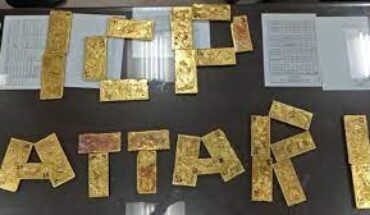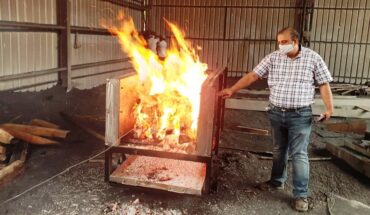New Delhi: Union Government has spent Rs 3, 623.45 crore on crop residue management, since 2018, in Delhi, Punjab, Haryana, and Uttar Pradesh, Union Minister of State for Environment, Forest and Climate Change Kirti Vardhan Singh informed in the Lok Sabha.
Punjab has been allocated the highest amount of Rs 1, 681.45 crore, followed by Haryana with Rs 1, 081.71 crore. Uttar Pradesh was allocated Rs 763.67 crore, NCT of Delhi Rs 6.05 crore, and the Indian Council of Agricultural Research (ICAR) got Rs 83.35 crore, according to the figures tabled in the Lower House.
The funds have been used to subsidise crop residue management machinery and set up custom hiring centres (CHCs) to curb stubble burning and promote sustainable practices, the minister told the Lower House.
Over three lakh machines have been distributed, including 4,500 balers and rakes for collecting paddy straw for ex-situ utilisation, he said.
The government has also committed to up to Rs 1.4 crore for pelletisation plants and up to Rs 2.8 crore for torrefaction plants, depending on the plant’s capacity. So far, 17 applications for such plants have been approved, with 15 of them expected to process up to 2.70 lakh tonnes of paddy straw annually, the minister stated.
In 2018, the Ministry of Agriculture & Farmers Welfare launched a scheme aimed at supporting the purchase of crop residue management machinery and the establishment of CHCs in NCT of Delhi, Punjab, Haryana, and Uttar Pradesh for in-situ management of paddy straw. In 2023, the Ministry revised the scheme’s guidelines to enhance support for establishing a crop residue/paddy straw supply chain, providing financial assistance for the capital cost of machinery and equipment.
In collaboration with state authorities and with agencies like ISRO, ICAR, and the Indian Agricultural Research Institute (IARI), the government has launched a comprehensive action plan to address the widespread issue of crop residue burning, the minister said.
To manage crop residues directly in the fields, the government has allocated crop residue management (CRM) machinery, essential for effectively handling paddy straw. It has also introduced high-yield, short-duration paddy varieties as substitutes for PUSA-44.
The government has also mandated the use of Super Straw Management Systems (SMS) with combine harvesters, which chop and evenly spread the straw across the fields, eliminating the need for burning. Additionally, the use of bio-decomposers developed by IARI is encouraged to naturally decompose paddy straw, converting it into a valuable fertiliser.






